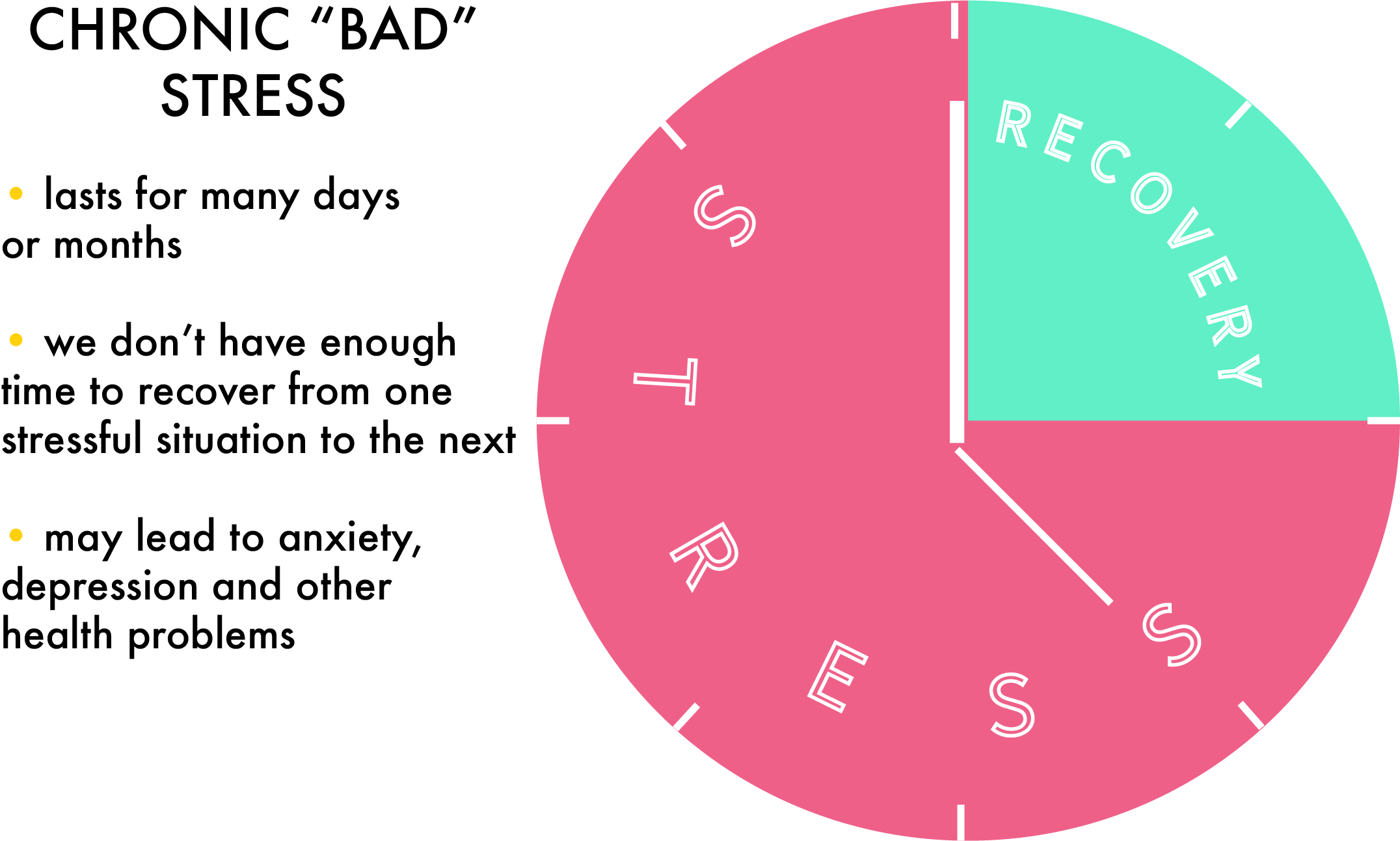What is stress?
Stress is how our bodies respond when we are in a situation where we feel any type of pressure or demand, especially if we feel the situation is dangerous or threatening. The pressure or demand is called a stressor.[1]
How does stress work?
Information Source[2]
Good stress vs bad stress
Stress affects each person in a different way. Some people may experience health issues as a result of their stress, while others may not. This is because everyone perceives stress differently. A situation that may be stressful for one person may not be as stressful for another person.
While people react differently to stress, studies have found long-term stress to have negative health consequences. Long-term stress (aka chronic stress) refers to stress that lasts for many hours in a day or lasts for weeks or months or years. We can experience long-term stress from one factor such as poor health or it can be the result of a situation that tends to be present in our lives for short periods over and over again, such as periodic interactions with a toxic manager or co-worker.[3][4]
If we continue to feel stressed for long periods, our cortisol levels also remain high. Having constantly high cortisol levels can negatively impact our health. It can lead to issues such as:[5]
- Muscle tension — when we're stressed our muscles tense up and they relax when we de-stress. However, if we are chronically stressed our muscles stay tense which can lead to problems such as: tension headaches and migraines (linked to tense shoulders, neck and head), pain in upper body and lower back.
- Respiratory problems — when we're stressed our airways from our nose to our lungs become narrower — if we continue to be stressed this can lead to difficulty breathing especially for people with preexisting respiratory conditions such as asthma, chronic bronchitis, etc.
- Cardiovascular problems — under stress, when our fight or flight system is activated we experience increases in blood pressure and heartbeat. During prolonged periods of stress, we may consistently have higher blood pressure and a faster heartbeat which can lead to heart problems and issues with blood vessels such heart attack, stroke or hypertension.
- Immune system problems — hormones such as cortisol help regulate the immune system and reduce inflammation, which is helpful in a stressful situation to prevent injury. However, having high cortisol levels for extended periods of time can lead to your immune system overworking itself.
- Gut health issues — the gut has neurones which communicate with the brain — chronic stress can affect the communication between the brain and the gut leading to problems such as bloating, pain and discomfort. The bacteria present in the gut can also affect gut and brain health and potentially cause problems with our ability to think and affect our emotions.
Can stress be a good thing?
Researchers have found stress to be beneficial when experienced for a short period (minutes to a few hours). Short-term stress can help improve our focus, performance and even our memory.
Many people can handle short-term stress, even repeated episodes of it, as long as they have enough time to recover from the stressful event before the next one occurs.[4] Let's consider the example of exercise. Exercising daily, in moderation, can benefit our health. Even high-intensity workouts (HIIT), in moderation, can be beneficial by helping us build muscle, improve our stamina and our overall cardiovascular health. However, imagine doing a HIIT workout for 36 hours with no breaks, or running multiple marathons in a row. This could lead to a higher chance of experiencing pain, injury and exhaustion because of the consistent exposure to stress. Making time to rest and recover after experiencing any type of stressful event is crucial to preventing injury to our mental and physical health.

